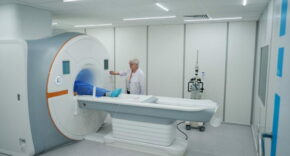
The NHS doesn’t just need more hands on deck – it needs smarter ones. Patient wait lists remain high, staff are being pushed to exhaustion, and Unions are embroiled in escalating tensions with the Government over fair pay. The UK’s health service is searching for solutions that don’t require doubling its workforce or budget.
Forget chatbots – AI agents in NHS systems are intelligent, decision-capable digital co-workers capable of supporting triage and health outcome predictions. While guidance has recently been published for NHS staff on implementing AI for general practice, there is only so much that can be achieved with the siloed, disconnected systems that are often in place.
Joseph Kim, CEO at enterprise agentic AI platform, Druid AI, explains that in order to mitigate bottlenecks, boost efficiency, cut patient queues, and save time & money, NHS bodies need proactive AI systems that understand natural language, work across multiple platforms (like EPRs, HRIS, CRMs, or booking systems), and can carry out multi-step workflows from start to finish.
Enter AI agents
From patient booking platforms to HR and finance functions, virtual assistants are able to take on repeatable, logic-driven tasks at scale, round the clock.
It’s not about replacing staff or handing over decision-making power to AI. AI agents work alongside staff, providing the breathing space necessary to access the information they need quickly, in order to make patient-driven decisions.
With an estimated 36% of data globally being generated by healthcare services, the NHS needs to provide fully intuitive digital options to complement this trend in patient behaviour.
The Tony Blair Institute for Global Change research calculates that implementation of AI across navigation services alone could free up 29 million GP appointments annually across the UK, with resource gains for non-clinicians worth £340m a year.
By connecting existing patient-facing platforms to a fully fledged AI agent capable of making real-time decisions, NHS services can reduce unnecessary appointment allocation, particularly when treatment or advice can be delivered remotely. Agentic AI also enables data to be centralised, removing the need to go back and forth between siloed data systems and allowing virtual healthcare assistants to handle appointment scheduling, referral prioritisation, and follow-ups all in one place.
This doesn’t end with unifying application processes. Agentic AI can also calculate, determine and achieve multiple steps simultaneously, without needing to be queried repeatedly about every piece of information – streamlining both clinical and non-clinical workflows.
Addressing patient security
Understandably, NHS bodies – and indeed healthcare organisations globally – remain cautious in adopting new digital technologies due to fears that patient data can be lost or become insecure as it migrates to new infrastructure.
However, agentic AI encrypts information that can be tailored to independently detect and monitor any sensitive data. Biometric security and role-based access control can be put in place to deny unauthorised access, while user permissions can be customised, allowing staff to access the data they require for day-to-day occupational duties based on organisational structure and job roles.
These systems can seamlessly and securely integrate with clinical systems (such as EMIS or Epic), HR software, procurement tools and legacy databases. In addition to encrypting data, agentic AI platforms can add another layer of protection to cloud-based infrastructure – automatically patching and updating as the NHS infrastructure evolves.
Smarter patient journeys
Since its establishment in 1948, the NHS has had to evolve to stay on top of patient needs. But while treatments have advanced, service delivery has struggled to keep pace.
AI agents can become fully immersed in the entire knowledge base at the NHS’s disposal, collating information and sharing it to respond to patient concerns quickly. A strong patient experience calls for clear and intuitive diagnoses and quick answers to concerns and queries. Combining agentic AI with generative AI models – a field of artificial intelligence on everyone’s lips – allows for more human-like responses. However, generative AI is still limited in flexibility, prone to errors, hallucinations and long-term bias.
Agentic AI, by contrast, is deterministic and highly capable of guiding patients through an array of healthcare checkpoints. Disease prevention strategies, prescription management and appointment scheduling can be achieved in response to basic patient inquiries, while, in the background, simultaneously researching the correct, medically sound patient pathway to take.
Symptom checking powered by agentic AI can provide thousands of individual, personalised initial assessments, far quicker than manual booking or triage systems. The ability to check symptoms more regularly, while waiting times are being reduced, can accelerate the discovery of any signs of potentially fatal illnesses that may otherwise worsen while patients are waiting to be seen.
As this technology continues to evolve and integrate with tools like telemedicine platforms and wearable devices, it lays the foundation for a more proactive, always-on model of care, transforming the healthcare experience from reactive episodes to ongoing, data-driven support.
Maintaining the human touch
The use of healthcare agentic AI is to support staff, as well as patients. Virtual assistants can provide easy access to specific resources or suggest treatment based on the resources requested – not dissimilar to Google’s AI search tool, yet completely tailored to the NHS trust and based on approved healthcare practices.
These tools can also enhance staff productivity and well-being. By providing frontline healthcare staff with access to verified and trusted knowledge bases, they reduce frustration, improve decision-making and allow clinical teams to focus on care delivery, not admin.
Importantly, agentic AI is not designed to make systems completely robotic and devoid of the human touch. The ethical use of AI should be to inform and support the clinical decisions made by a human, not make the decisions for them.
AI agents act as collaborative colleagues for the existing workforce to engage with, providing relevant options based on real-time, verified data, then deferring to human professionals to act on that insight.
With an agentic AI system in place, the NHS can reduce operational strain, keep patient data secure, and support innovation in treatment delivery, all while saving time and money.











